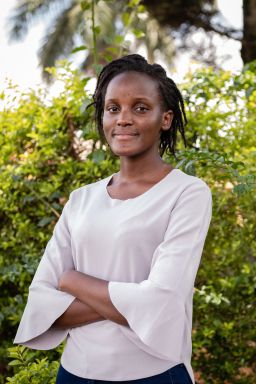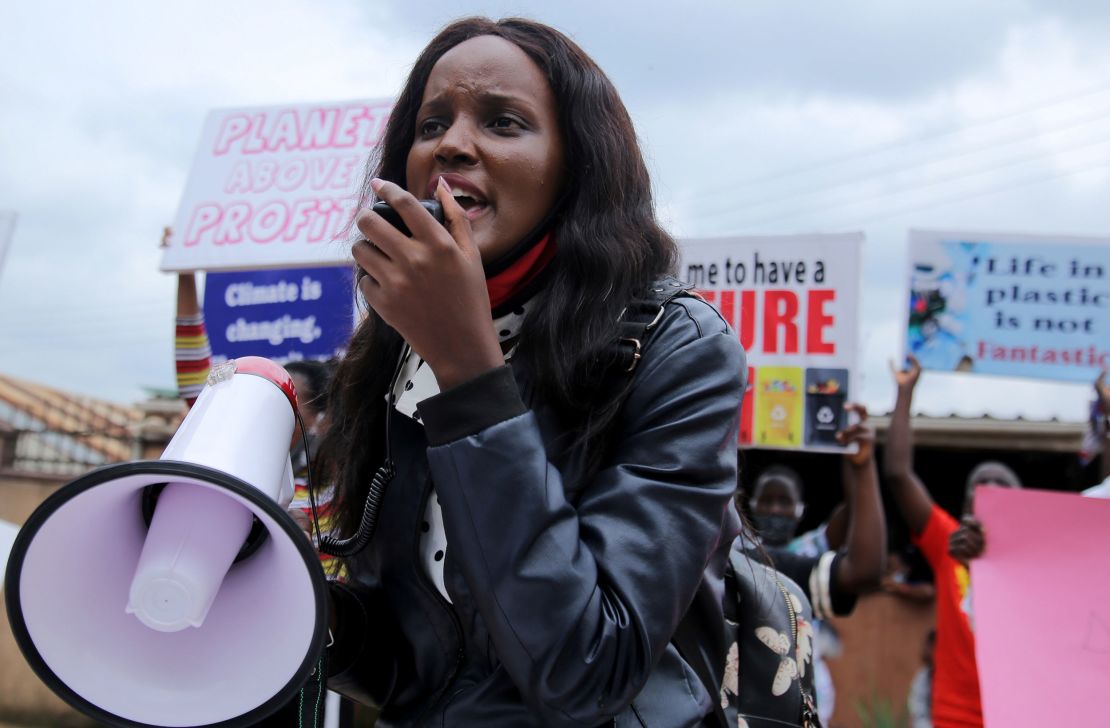Editor’s Note: Vanessa Nakate is a climate activist from Uganda. She was her country’s first Fridays for Future activist and is also the founder of the Rise Up Movement. She is the author of the new book “A Bigger Picture: My Fight To Bring a New African Voice to the Climate Crisis” (Mariner Books). The views expressed here are her own. Read more opinion on CNN.
In Uganda, where I am from, it used to be that no one ever really talked about climate change. It was taught in school as if it were a far-off threat – something that our grandchildren might face. But we are facing it now, and our futures are in jeopardy.

Uganda is heavily reliant on agriculture for people’s livelihoods, and that means that increasing drought, flooding, landslides and even locust swarms, all driven by global warming, have caused countless people to lose their incomes – and even their lives – in the last decade. And it’s not just Uganda: The entire continent of Africa is often ignored or made an afterthought in global discussions on climate change.
In 2021, millions of people in Angola are facing starvation as a result of the worst drought in 40 years. Similar drought is crushing Algeria and Madagascar, which are devastated by water shortages. Many people talk about the Amazon rainforest and how it is a critical carbon sink for our planet. But fewer people are aware of the unsustainable and illegal logging in the Congo rainforest, the second-biggest tropical rainforest on Earth.
I have experienced this dismissive thinking personally. In late 2019, the same year I started campaigning on the climate crisis, I was invited to travel from Uganda to Switzerland for the 2020 World Economic Forum in Davos – and I experienced why it’s so hard for activists like me to be noticed.
After a press conference with activists from European countries, including Greta Thunberg, I was cropped out of the corresponding news photograph. The photo was taken of five activists as we were all standing in a line, but someone decided only the White faces in that photograph should make the news story. I was the only person of color, and I was taken out – I was also not mentioned in the accompanying article. The Associated Press apologized to me personally, publicly acknowledged its “terrible mistake” and said it would expand diversity training to include staff members all over the world.
But they did not just crop me; they cropped an entire continent.

This story encapsulates one of the biggest issues with how we talk about the climate crisis. Globally, we are ignoring the people who are most affected by it. And because of that, so many people in the global south (a term referring to the more southerly, lower-income countries that are often most affected by the climate crisis) have lost hope.
A generation of climate activists throughout the global south are rising up to demand that action is taken to mitigate our suffering, not just the suffering of people in the richest countries. We have continued to mobilize throughout the pandemic, online and in the streets, to demand that leaders in the global north take full accountability for their historic emissions.
That’s why the young people taking the world stage at the United Nations climate change conference, COP26, in Glasgow, Scotland, are among the most important and powerful voices in and for the world. The 26 young activists in Doha Debates’ #SolvingIt26, for example, are crucial to this fight – not only must we listen to my generation, we must center them in the effort to define and solve the problems caused by rising global temperatures.
People like Raslen Jbeli in Tunisia and Ridhima Pandey in India are among the 16 children and teenagers who filed a complaint against the United Nations Committee on the Rights of the Child for failing to protect our futures against the devastating and lasting effects of climate change. Raslen has witnessed fires that ruined the homes of his neighbors, and Ridhima’s home state of Uttarakhand has been affected by severe weather that has caused fatal flooding and landslides.
My own climate activism began because I was inspired by my dad’s work with our local community, and I endeavored to do research into the problems that were most affecting people in my country. I started by trying to reach people in my country with my message that we need urgent action. I protested on the streets, at first outside the Parliament and then on busy roads. No one paid much attention to me.
But my generation’s voices are essential. Globally, we must not just listen to young people, but take action to protect our futures. We need to listen to Raslen and Ridhima and other young voices on the front lines of the climate crisis.
We need to listen to Shaama Sandooyea, a Mauritian marine biologist who has found the effects of climate change in remote places in the Indian Ocean. We need to listen to Joelle Zgheib, who realized that climate change wasn’t an urgent issue in Lebanon and is beginning to change that.
As COP26 continues and after it ends, we must consider the needs and the suffering of the global south, as well as lifting up the young people who are fighting to have a future. This means providing adequate finance to lower-income countries for them to transition to clean energy, and also to adapt to the extreme weather events they are already facing.
It means making rapid emissions cuts that will bring the world in line with an emissions reduction pathway to a safe future. It also means listening, not just during COP26, but for as long as we fight climate change. Please take some time to read about each of these 26 young climate activists, to listen to the issues affecting them and – most importantly – to hear their solutions.




